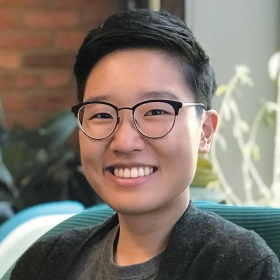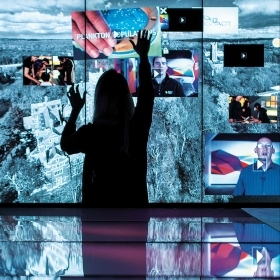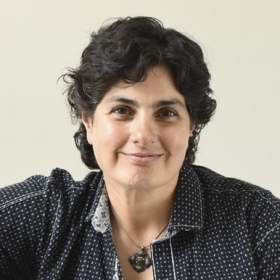Sukin “Dylan” Sim ’15
In high school, Sukin “Dylan” Sim ’15 found themselves captivated by a science textbook excerpt about computational chemistry, a type of chemistry that uses computer simulation to help solve problems. At Wellesley, they sought out professors working on research in the field, then crafted their own major of chemical physics with a minor in math.

In high school, Sukin “Dylan” Sim ’15 found themselves captivated by a science textbook excerpt about computational chemistry, a type of chemistry that uses computer simulation to help solve problems. At Wellesley, they sought out professors working on research in the field, then crafted their own major of chemical physics with a minor in math.
Junior year at Wellesley, Dylan was perusing periodicals in the Science Center library when another piece of writing caught their eye. The introductory article on quantum computing prompted them to pursue a Ph.D. in the burgeoning field at Harvard.
Now, Dylan develops algorithms that could ultimately power quantum computers, machines that harness the properties of quantum physics to perform complicated, time-consuming computations. “Quantum computers can’t replace traditional computers,” Dylan says, “but they can work in tandem to solve problems that are unsolvable using the computers we have today. It’s a new paradigm of computing.”
Ultimately, quantum computing could drive innovation in a number of industries. For example, it could help pharmaceutical companies to better understand how drug molecules work and interact with each other, leading to new, life-saving medications, groundbreaking clean air and energy technology, or more efficient ways to produce food.
At Dylan’s last position at a quantum software company, they worked on algorithms for early stage quantum computers, or devices dedicated to the technology’s near-term applications. This year, they took a role with PsiQuantum to explore another side of the field: one that looks at what a quantum computer might look like further in the future.
Dylan was born in South Korea and came to the U.S. with their younger sister, mother, and engineer father a week after starting second grade. Their father had worked in a Korean national laboratory and has a background in computer science and electrical engineering. Dylan’s younger sister is also a computer scientist.
In high school in Acton, Mass., Dylan loved chemistry courses. But “my confidence in my scientific skills and knowledge was pretty low,” they say.
That changed at Wellesley. Dylan relished the four years spent working in chemistry professor Don Elmore’s laboratory, splitting time between the wet lab and computational research. The support Dylan found from professors and peers was emboldening. Their thesis advisors encouraged Dylan to attend conferences, present work, and apply to graduate school.
“I’ve been very fortunate to have so many great teachers, professors, and mentor figures,” Dylan says. “Wellesley was a really special place for me, and the natural next step is to pay it forward.”
Now, they make a point to support the next generation of quantum scientists through mentorship and presentations. Recently, through work with the Quantum Open Source Foundation, Dylan mentored two high schoolers as they developed and carried out a quantum research project. They have also spoken to students at Wellesley and Smith.
Dylan is excited that more young people are becoming interested in the field, and that awareness about the great potential of quantum computers has grown. “Quantum computing materials are becoming more accessible,” they say.
Contributing to the literature through research papers and blogs, Dylan shares their perspective via podcasts, YouTube, and open-source software codes.
A true liberal arts graduate, Dylan is also interested in the connection between quantum computing and the arts. Years ago, they were taken by a sculpture at a gallery that was an abstract interpretation of a quantum phenomenon called entanglement.
“I’d love to talk to an artist about quantum computing and see what they come up with, or help a writer get the science right in a book,” Dylan says. “Science used to have this stereotype of being a very dry field, but there’s actually something very beautiful and artistic about it.”

